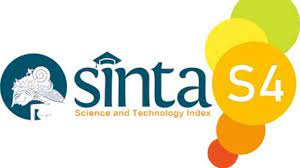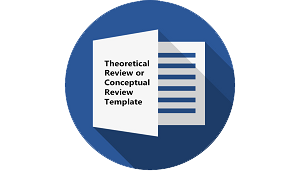Teacher Perception in Teaching English for SMP in Klaten Regency During Covid-19 Outbreak
DOI:
https://doi.org/10.30957/ijoltl.v6i1.645Keywords:
online teaching, curriculum planning, competence, core competence.Abstract
This study explores teacher perception of teaching English using the online system and describes how teacher prepares to teach objectives, teaching materials, teaching methods, and evaluation process for SMP students. This study applies a case study design with a quantitative approach. A number of 22 SMP English teachers in Klaten were recruited as participants of the study. Data were collected using a checklist through the virtual Focus Group Discussion. Basically, data were analyzed using descriptive statistics that present the rate percentage and diagram. Results show in general teachers perceive that online teaching is not prospectively viewed from students’ perspectives. Based on the curriculum planning, teaching objectives are perceived to teach knowledge competence through reading and listening, and skill competence through writing and speaking. Teaching materials are developed based on the 2013 Curriculum and syllabus by relying on online teaching materials. The teaching method is basically based on Google meet and Google classroom. In addition, evaluation is mainly done through Google form, and subsequently paper-based task but submitted online.
Downloads
References
Akinyemi, G. M., & Abiddin, N. Z. (2013). Quality Administration and Management in Higher Education in Nigeria: Implications for Human Resource Development. International Education Studies, 6(4), 225–235. https://doi.org/10.5539/ies.v6n4p225
Akrim. (2018). Media Learning in Digital Era. 5th International Conference on Community Development (AMCA 2018), 231(Amca), 458–460. https://doi.org/10.2991/amca-18.2018.127
Al-Qahtani, A. A. Y., & Higgins, S. E. (2013). Effects of traditional, blended and e-learning on students’ achievement in higher education. Journal of Computer Assisted Learning, 29(3), 220–234. https://doi.org/10.1111/j.1365-2729.2012.00490.x
Balakrishnan, V. D., & Puteh, F. (2014). Blending Face-to-Face Communication and Video Blogging in Acquiring Public Speaking Skills. 2(1), 64–72.
Babai Shishavan, H., & Sadeghi, K. (2009). Characteristics of an effective English language teacher as perceived by Iranian teachers and learners of English. English Language Teaching, 2(4), 130-143.
Behroozi, M., & Amoozegar, A. (2014). Challenges to English language teachers of secondary schools in Iran. Procedia-Social and Behavioral Sciences, 136, 203-207.
Bhalla, A., Jajoo, U. N., & Kalantri, S. P. (2002). Attitude of teachers towards teaching. The Journal of the Association of Physicians of India, 50, 1405-1408.
Cheng, L., & Wang, H. (2004). Understanding professional challenges faced by Chinese teachers of English. TESL-EJ, 7(4), 1-20.
Dewi, W. A. F. (2020). Dampak COVID-19 terhadap Implementasi Pembelajaran Daring di Sekolah Dasar. Edukatif : Jurnal Ilmu Pendidikan, 2(1), 55–61. https://doi.org/10.31004/edukatif.v2i1.89
Freeman, D. L., & Anderson, M. (2011). Techniques & Principles in Language Teaching. Oxford University Press, 8(3), 81-92.
Haryanto. (2020). Exploring Blended Learning Based-Model of English Learning to enhance Students ’ Communicative Competence. European Journal of Molecular & Clinical Medicine, 7(8), 1–11. https://ejmcm.com/article_3014.html
Hastuti, E., & Oswari, T. (2012). Metode Pembelajaran Bahasa Inggris Mandiri dengan Free Virtual Online Course. UG Jurnal, 6(11).
Jamaluddin, D., Ratnasih, T., Gunawan, H., & Paujiah, E. (2020). Pembelajaran Daring Masa Pandemik Covid-19 Pada Calon Guru : Hambatan, Solusi dan Proyeksi. Karya Tulis Ilmiah UIN Sunan Gunung Djati Bandung, 1–10.
Khong, T. D. H., & Saito, E. (2014). Challenges confronting teachers of English language learners. Educational Review, 66(2), 210-225.
Mirzaee, F. (2016). Iranian EFL learners' attitude towards communicative language teaching. Journal of Applied Linguistics and Language Research, 3(4), 103-110.
Mohammadi, N., Ghorbani, V., & Hamidi, F. (2011). Effects of e-learning on language learning. Procedia Computer Science, 3, 464–468. DOI: 10.1016/j.procs.2010.12.078
Mulyana, M., Rainanto, B. H., Astrini, D., & Puspitasari, R. (2020). Persepsi Mahasiswa Atas Penggunaan Aplikasi Perkuliahan Daring Saat Wabah Covid-19. JAS-PT (Jurnal Analisis Sistem Pendidikan Tinggi Indonesia), 4(1), 47. https://doi.org/10.36339/jaspt.v4i1.301
Nakayama, M., Yamamoto, H., & Santiago, R. (2006). Investigating the impact of learner characteristics on blended learning among Japanese Students. Proceedings of the International Conference on E-Learning, ICEL, 2006–Janua(3), 361–370.
Organization, I. I. L. (2020). COVID-19 and the education sector. http://www.ilo.org/sector/Resources/publications/WCMS_742025/lang--en/index.htm
Rodrigues, P. D., & Vethamani, M. E. (2015). The Impact of Online Learning in the Development of Speaking Skills. Journal of Interdisciplinary Research in Education, 5(1), 2232–180.
Soliman, N. A. (2014). Using E-Learning to Develop EFL Students’ Language Skills and Activate Their Independent Learning. Creative Education, 05(10), 752–757. https://doi.org/10.4236/ce.2014.510088 worldometers. (2020). Coronavirus.
Yin, R. K. (2016). Qualitative Research: from Start to Finish (2nd ed.). The Guilford Press.
Yuyun, I. (2012). E-Language Learning Program: Problems and Challenges. 6oth International Conference, 1–8.
Zhafira, N. H., Ertika, Y., & Chairiyaton. (2020). Daring Sebagai Sarana Pembelajaran Selama Masa Karantina Covid-19. Jurnal Bisnis dan Kajian Strategi Manajemen, 4(1), 37–45. https://doi.org/https://doi.org/10.35308/jbkan.v4i1.1981.
Downloads
Published
How to Cite
Issue
Section
License
Authors who publish with this journal agree to the following terms:
- Authors retain copyright and grant the journal right of first publication with the work simultaneously licensed under a Creative Commons Attribution-ShareAlike 4.0 International License that allows others to share the work with an acknowledgement of the work's authorship and initial publication in this journal.
- Authors are able to enter into separate, additional contractual arrangements for the non-exclusive distribution of the journal's published version of the work (e.g., post it to an institutional repository or publish it in a book), with an acknowledgement of its initial publication in this journal.
- Authors are permitted and encouraged to post their work online (e.g., in institutional repositories or on their website) prior to and during the submission process, as it can lead to productive exchanges, as well as earlier and greater citation of published work (See The Effect of Open Access).












